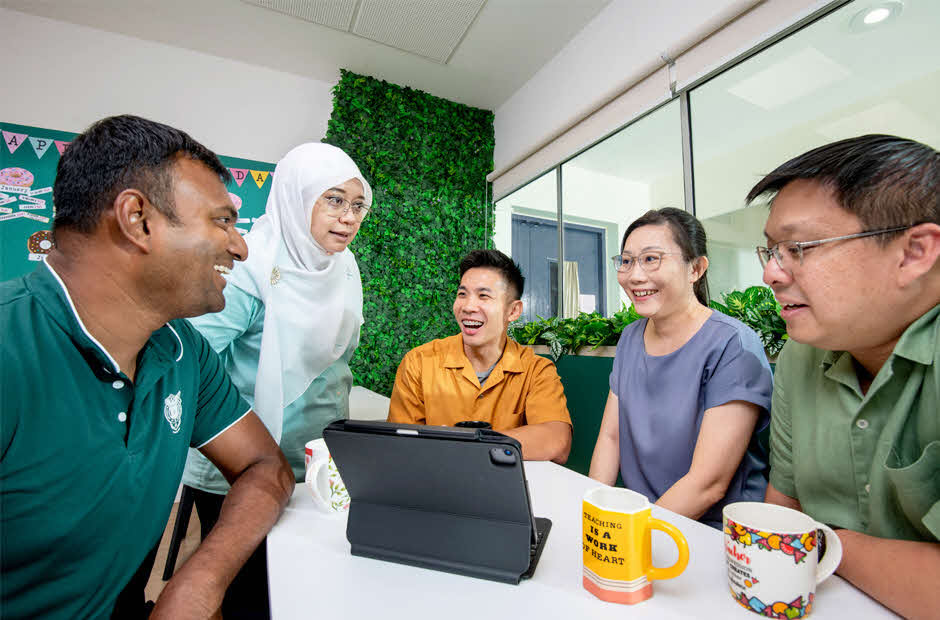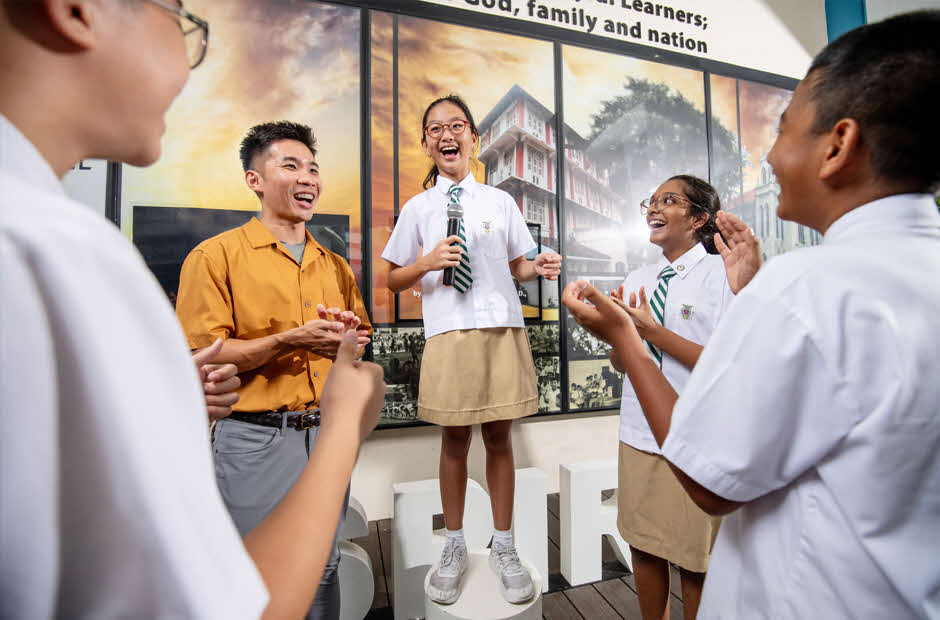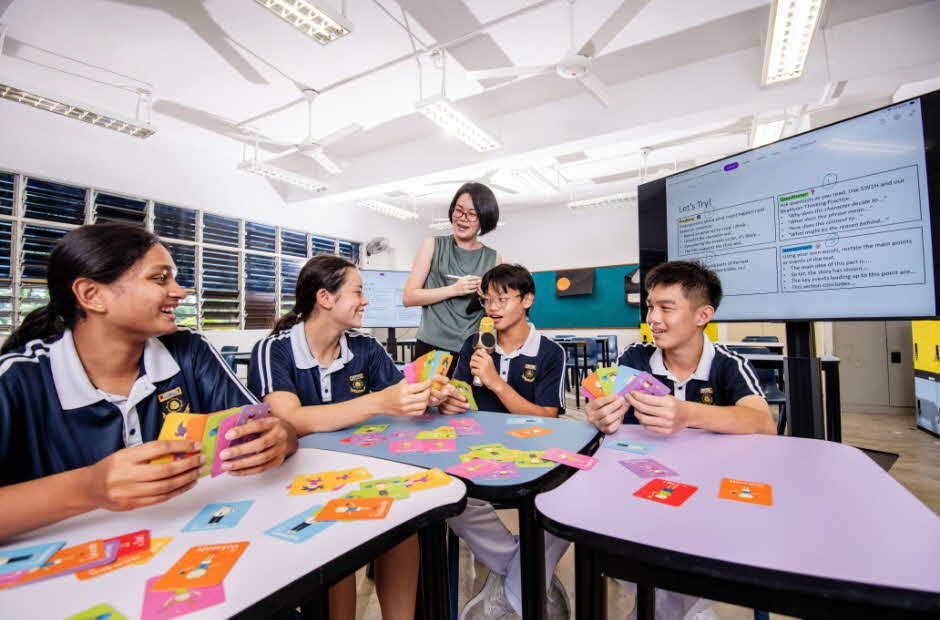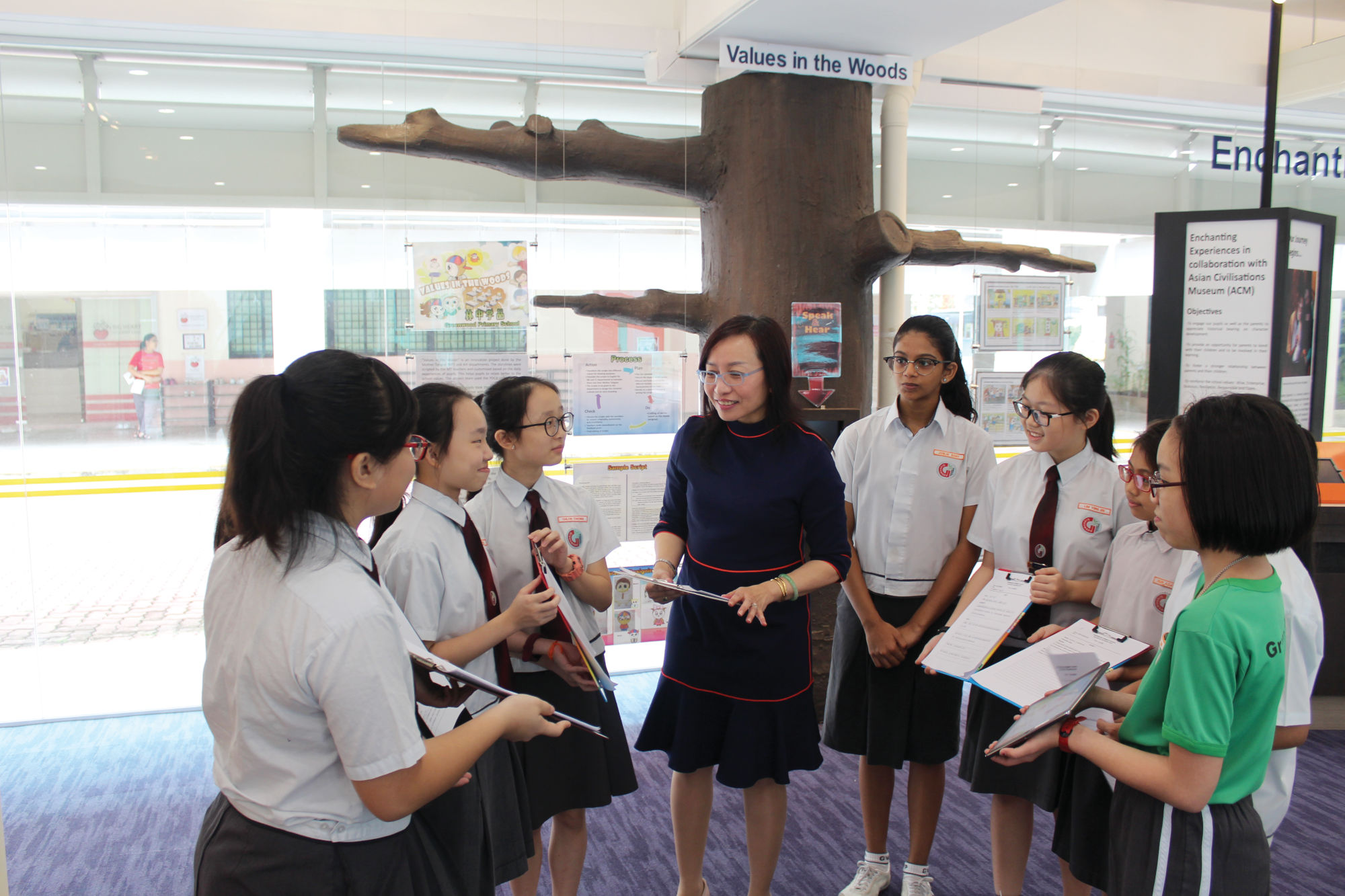A teaching win for me is…when students dare to step out of their comfort zone.
Harshini was once a rather shy and reserved student.
Since I became her form teacher and English teacher last year, I have been encouraging her to speak up in class, believing she had a voice within her waiting to be heard. The turning point came when she surprised me by volunteering for public-speaking at “Anthonians Unscripted”.
On stage, sharing her experiences about her trip to India, Harshini faced her nerves head-on. Despite moments of forgotten lines and pauses, she persevered with grace. What struck me most was that I didn’t need to intervene; the audience’s support empowered her to complete her speech.
That moment was a culmination of months of hard work and encouragement. Harshini’s journey from a hesitant student to a confident speaker exemplifies the power of providing opportunities for growth.
As an educator, these wins remind me that teaching isn’t just about imparting knowledge but also nurturing resilience, self-assurance, and the courage to embrace challenges. Harshini’s story is a testament to the impact of believing in our students’ potential and providing them with the platform to shine.
An effective teaching tool for me is… cultivating a culture of (civil!) disagreement among my students.
It’s difficult, and messy, but I find it incredibly important to their learning.
I utilise “talk moves” liberally in my class. Talk moves are discussion strategies that encourage participation from all students. The card game version I use makes it fun for students as they learn communication techniques such as saying “I would like to add that” when building on or challenging an idea, or “After listening to… I think that…” to elaborate and clarify. With practice, students learn to articulate their thoughts clearly, converse meaningfully, and disagree respectfully.
There is also no fixed grouping during group work. Most of the time, students are mixed based on readiness, interest or random assignment. This mirrors real-world dynamics where individuals often collaborate with diverse teams.
Diversity in grouping means diversity in views, and these sometimes get heated. I view these moments as valuable teaching opportunities. Disagreement indicates that my students are invested and engaged, and to me, this presents an opportunity for them to deepen their understanding of the discussion topic. My students have told me, “Mr Ong, our class is like a courtroom!” and I agree. Our lessons are our safe space, where ideas are consistently debated, challenged, and refined.
Discussions can get intense, but I reassure students that it’s a normal part of learning and growth. I commend their investment in discussions and guide them towards peaceful resolutions. This approach also fosters a culture of respect, open-mindedness, and collaboration — essential qualities for their future endeavours.

A project I find meaningful is… a recess programme for public speaking without a script.
In a world where scripted content often dominates, I wanted to highlight the essence of authentic, unscripted expression. Instead of memorising and delivering scripts without error, I give them the platform to speak from their heart without a safety net of prepared lines.
Above all, I want to celebrate my students’ courage and vulnerability.
Unscripted public speaking can be scary, but my students have willingly stepped up to try. “Anthonians Unscripted” is a recess programme that takes place bi-weekly at our Inspire Corner, where students volunteer to speak on what they choose – without a planned script. Other students would gather to support their peers who take the stage to speak on topics ranging from school policies to personal aspirations.
One of the most rewarding aspects has been witnessing the transformative power of courage. Speakers who are initially nervous gradually gain confidence as they share their thoughts and experiences. This courage becomes contagious, inspiring others to take the stage and confront their fears.
To acknowledge their bravery, I give every participant a “Courage” badge. The emphasis is not on flawless delivery but on the courage to speak authentically and take risks.
While “Anthonians Unscripted” may not create instant change, it plants seeds of self-assurance and a willingness to confront one’s fears. Students learn that true growth often stems from stepping outside comfort zones — a lesson that extends far beyond the stage.






